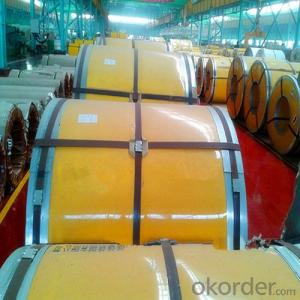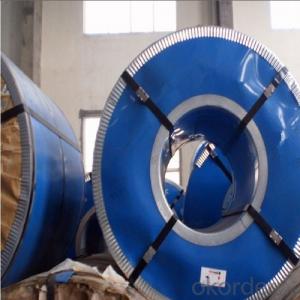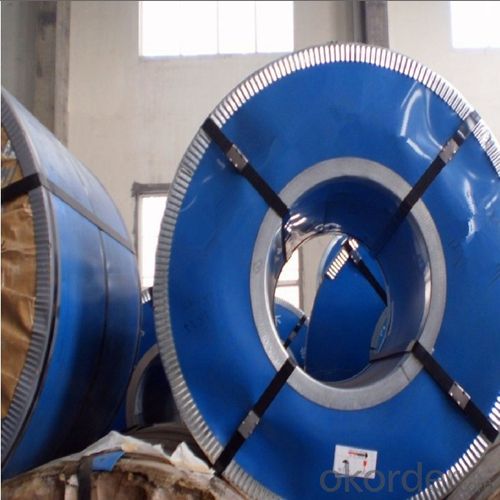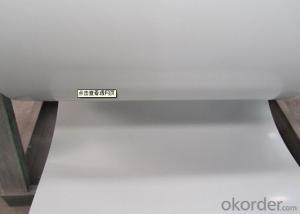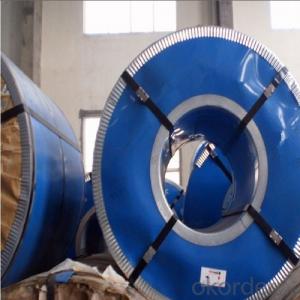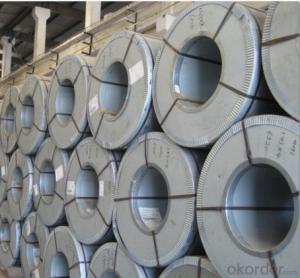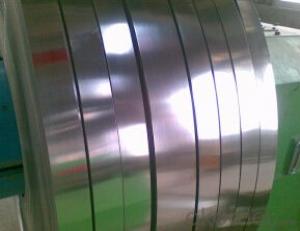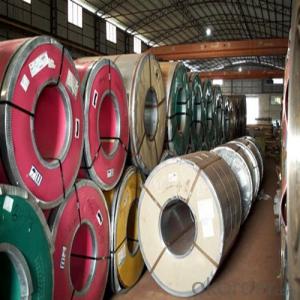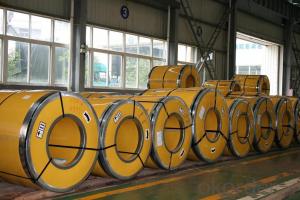Stainless Steel Coil in Hot Rolled Cold Rolled 2B/BA 200 Series
- Loading Port:
- Guangzhou
- Payment Terms:
- TT OR LC
- Min Order Qty:
- 100 m.t.
- Supply Capability:
- 5000 m.t./month
OKorder Service Pledge
OKorder Financial Service
You Might Also Like
1.Structure of Hot Rolled Stainless Steel Coil 2B/BA:
Stainless steel coil is a production which not easy rust, acid resistance and corrosion resistance, Stainless steel coil is a new kind of Austenite stainless steel by used Mn, N replace Ni. so it is widely used in light industry, heavy industry, daily necessities and the decoration industry. Stainless steel coil has good corrosion resistance and hot / cold processing performance, instead of stainless steel products for used in the not high of corrosive environment, such as indoor, inland city outdoor etc.
2.Main Features of the Hot Rolled Stainless steel coil:
1) High Quality: Using Latest automated control equipment to ensure the quality
2) Best Price: With most automated equipments to ensure our price is lower than the market
3) Fast Delivery: The delivery date within 20 das after get your order
4) Best Service: Our after-sell service team will help you to slove all the problems about the order
3. 304 Stainless steel coil Images
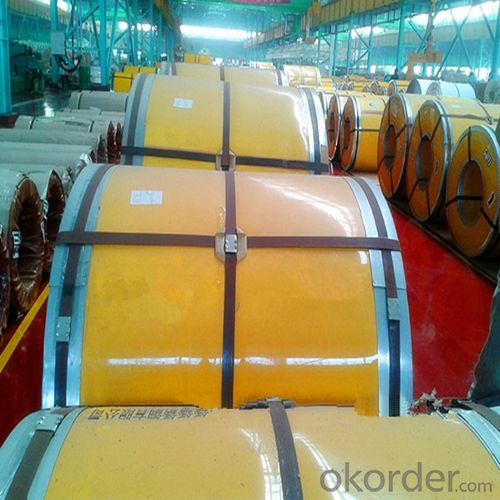
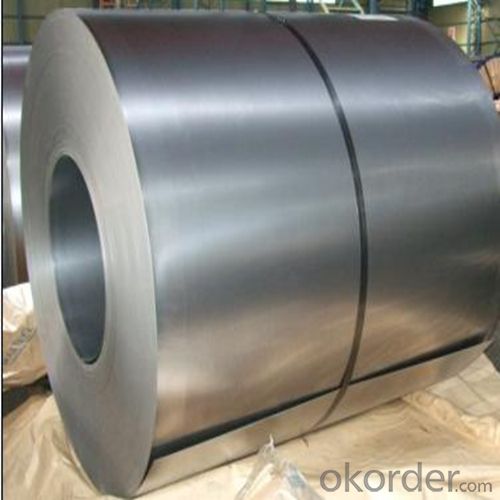
4. 304 Hot Rolled Stainless steel coil2B/BA Specification
Product name: 304 Stainless Steel Coil
Thickness: 0.2mm to 1.5mm
Technical: Cold Rolled
Width: 10mm to 1240mm
Type: 200 Series
Length: As customer's requested
Standard: JIS, SUS
Finish: BA, 2B, 8K, NO.3, NO.4, HL
MOQ: 100 MT
Ship Term: FOB Shenzhen port or CNF import port
Delivery Time: 15 to 20 day after the receive the deposit or LC
Packaging: By wooden pallet, wooden case or according to customer's request
5.FAQ
We have organized several common questions for our clients,may help you sincerely:
1) How long can we receive the product after purchase?
2) In the purchase of product within three working days, We will arrange the factory delivery as soon as possible. The pecific time of receiving is related to the state and position of customers.Commonly 7 to 10 working days can be served.
- Q: Any details about JinSong Ferritic Stainless Steel?
- JinSong SUS420J2 stainless-metallic/ X30Cr13 has larger intensity, hardness and hardenability than 12Cr13 metallic and 20Cr13 metallic after quenching. It has much less corrosion resistance to dilute nitric acid and vulnerable organic and organic acid than 12Cr13 metallic and 20Cr13 metallic in room temperature. you will get extra strategies on its good website**
- Q: What are the common methods of protecting steel coils from corrosion?
- There are several common methods used to protect steel coils from corrosion. 1. Coating: One of the most effective methods is to apply a protective coating on the surface of the steel coil. Various types of coatings such as paint, epoxy, or zinc can be used to create a barrier between the steel and the corrosive environment. These coatings provide excellent corrosion resistance and prevent moisture and oxygen from reaching the steel surface. 2. Hot-dip galvanizing: This method involves immersing the steel coil in a bath of molten zinc, which creates a thick layer of zinc coating on the surface. The zinc coating acts as a sacrificial barrier, protecting the steel from corrosion. Hot-dip galvanizing is particularly effective in harsh environments or for long-term outdoor exposure. 3. VCI (Volatile Corrosion Inhibitor) packaging: VCI packaging is a method where steel coils are wrapped in a specially designed film or paper that contains volatile corrosion inhibitors. These inhibitors vaporize and form a protective layer on the surface of the steel, preventing corrosion. VCI packaging is commonly used for short-term storage or transportation of steel coils. 4. Desiccants: Moisture is a major contributor to corrosion. Therefore, using desiccants such as silica gel or activated alumina can help absorb moisture and maintain a dry environment around the steel coils. Desiccants are often used in conjunction with other protective methods to enhance corrosion protection. 5. Proper handling and storage: Proper handling and storage practices can significantly reduce the risk of corrosion. Steel coils should be stored in a dry environment away from moisture sources. They should also be handled with clean gloves to prevent the transfer of corrosive contaminants. Regular inspection and maintenance of the storage area are essential to identify and address any potential corrosion risks. By employing one or a combination of these methods, steel coils can be effectively protected from corrosion, ensuring their durability and integrity.
- Q: How are steel coils labeled and identified?
- Steel coils are typically labeled and identified using various methods such as tags, stickers, or printed markings. These labels usually contain important information including the coil's dimensions, weight, grade, manufacturer, and any specific customer requirements. Additionally, unique identification numbers or barcodes may be used for easy tracking and inventory management.
- Q: my friend needs sensitive ears....she wants to borrow mine but it says surgical steel,what does that mean?
- Surgical steel is a steel alloy that is free from any metals that are known allergens, such as nickel. It is widely used for surgical instruments and appliances. If you do lend your earrings, they should be sterilized before she wears them, and sterilized again when you get them back.
- Q: What are the dimensions of steel coils used in automotive component manufacturing?
- The dimensions of steel coils used in automotive component manufacturing vary depending on the specific application and requirements. However, common dimensions include thicknesses ranging from 0.5mm to 3mm and widths ranging from 600mm to 2000mm.
- Q: I am looking at website on google based on the terms structural steel fabrication and simply steel fabricationI know that there must be a difference between the two terms, but it seems that many website authors use the two terms interchangeably.Do you know the key differences between the two terms?
- Steel fabrication can include any kind of manufacture of steel. Structural steel is a narrow subset which would include, for example, I-beams and would not usually include stainless steel, sheet steel, rolled steel, etc.
- Q: i recently got an industrial piercing and instead of getting pierced with a metal bar i have a PTFE bar .. i eventually want to put in a metal bar but what kind do i get? whats the difference between a surgical steel and titanium bar?thanks
- 316L steel is the most basic metal used in body jewelry. It is the basic requirement of metal to be used in initial piercings and for healing. There are better grades but usually they cost more as well. For most people this grade of steel works just fine. Titanium is usually preferred over steel because it contains no nickel and it weighs almost 50% less than steel. Titanium can come in plain polish which looks just like steel AND it can come in a variety of colors (but NOT red or black). Titanium is super for people with sensitive skin to steel. It does cost a little more but is well worth it.
- Q: How are steel coils used in the manufacturing of automotive frames?
- Steel coils are used in the manufacturing of automotive frames by being shaped and formed into the desired dimensions and then welded together to create a strong and durable structure that provides stability and support to the vehicle.
- Q: I have my grandpa's navy knife from ww2, a mk2 combat knife i think, and i was wondering what type of steel it is made of. I'm guessing it's a high carbon steel, i'd just like to know exactly what grade.
- I would get a 1095, serrated edge, tanto style, with either a good quality rubberized or bone handle.
- Q: density of mild steel (MS) is 7850 KG per metre cube , but i want to know the density of stainless steel
- Density Of Stainless Steel
Send your message to us
Stainless Steel Coil in Hot Rolled Cold Rolled 2B/BA 200 Series
- Loading Port:
- Guangzhou
- Payment Terms:
- TT OR LC
- Min Order Qty:
- 100 m.t.
- Supply Capability:
- 5000 m.t./month
OKorder Service Pledge
OKorder Financial Service
Similar products
Hot products
Hot Searches
Related keywords
